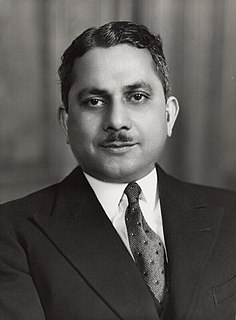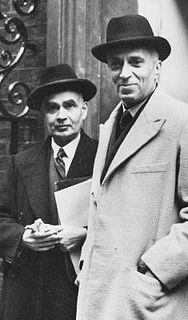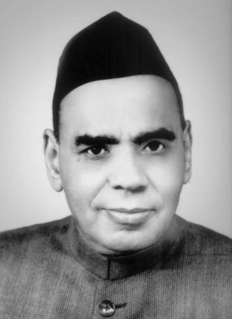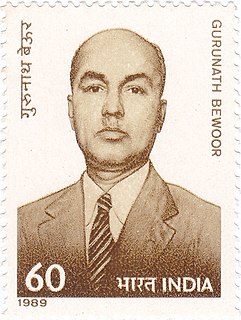Astad Dinshaw (A.D.) Gorwala CIE, ICS (1900 - 1989) was an officer of the Indian Civil Service, and then publisher of Opinion, a newsletter through which he doggedly opposed the Indian Emergency, which lasted from June 25, 1975, to March 21, 1977. [1]

The Most Eminent Order of the Indian Empire is an order of chivalry founded by Queen Victoria in 1878. The Order includes members of three classes:
- Knight Grand Commander (GCIE)
- Knight Commander (KCIE)
- Companion (CIE)
A newsletter is a printed report containing news (information) of the activities of a business or an organization that is sent by mail regularly to all its members, customers, employees or people, who are interested in. Newsletters generally contain one main topic of interest to its recipients. A newsletter may be considered grey literature. E-newsletters are delivered electronically via e-mail and can be viewed as spamming if e-mail marketing is sent unsolicited.
A Parsi born in 1900, Gorwala entered the Indian Civil Service in 1924, sitting the exams in India. He was posted to several places during his service, including Sindh. [2] As a Secretary to the Government of Bombay and its Director of Civil Supplies and Supply Commissioner, he was appointed a Companion of the Order of the Indian Empire (CIE) in the 1944 imperial New Year Honours list. [3]
Gorwala focused his writing on attacks on the individual by the agencies of the state. He also fought a long battle against corruption. [1] A year into the Indian Emergency, Opinion was ordered shut down, but Gorwala was able to print one last issue, in which he observed that,

A state is a polity that is typically established as a centralized organisation. There is no undisputed definition of a state. Max Weber's definition of a state as a polity that maintains a monopoly on the use of violence is widely used, as are many others.
The current Indira regime, founded on June 26, 1975, was born through lies, nurtured through lies, and flourished by lies. The essential ingredient of its being is the lie. Consequently, to have a truth-loving, straight thinking journal to examine it week after week and point out its falsehoods becomes intolerable to it. [1]
Gorwala was also critical of Jawaharlal Nehru's apparent naiveté in matters relating to the Soviet Union. Just before Nehru (at that time the Prime Minister of India) left for Moscow in 1955 (his first visit to the Soviet Union since independence), Gorwala wrote,

Pandit Jawaharlal Nehru was an Indian independence activist, and subsequently, the first Prime Minister of India and a central figure in Indian politics before and after independence. He emerged as an eminent leader of the Indian independence movement under the tutelage of Mahatma Gandhi and served India as Prime Minister from its establishment as an independent nation in 1947 until his death in 1964. He has been described by the Amar Chitra Katha as the architect of India. He was also known as Pandit Nehru due to his roots with the Kashmiri Pandit community while Indian children knew him as Chacha Nehru.

The Soviet Union, officially the Union of Soviet Socialist Republics (USSR), was a Marxist-Leninist sovereign state in Eurasia that existed from 1922 to 1991. Nominally a union of multiple national Soviet republics, its government and economy were highly centralized. The country was a one-party state, governed by the Communist Party with Moscow as its capital in its largest republic, the Russian Soviet Federative Socialist Republic. Other major urban centers were Leningrad, Kiev, Minsk, Tashkent, Alma-Ata, and Novosibirsk. It spanned over 10,000 kilometers (6,200 mi) east to west across 11 time zones, and over 7,200 kilometers (4,500 mi) north to south. It had five climate zones: tundra, taiga, steppes, desert and mountains.
... like many another sensitive nature, accustomed in its late twenties and early thirties to regard the soviet union as truly progressive, the Prime Minister seems never to have quite gotten over the vision of those days. Despite all that has happened since then, the Soviet Union still retains dor him some of that enchantment. To its virtues he continues to be very kind, to its vices and cruelties, he is almost blind. [4]
Gorwala also established Bombay's food rationing system during World War II, a system that still operates, though with reduced efficiency. [5]










